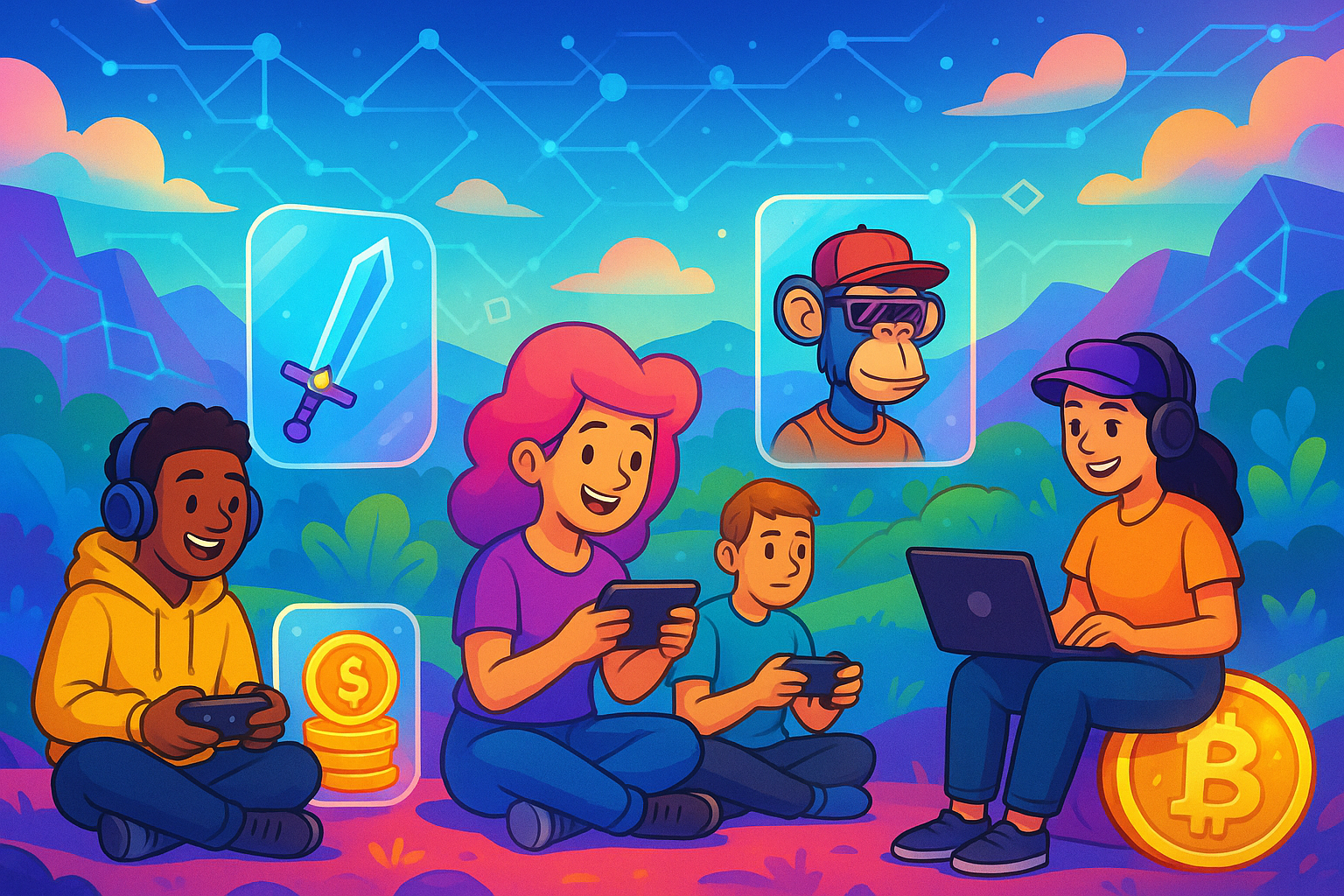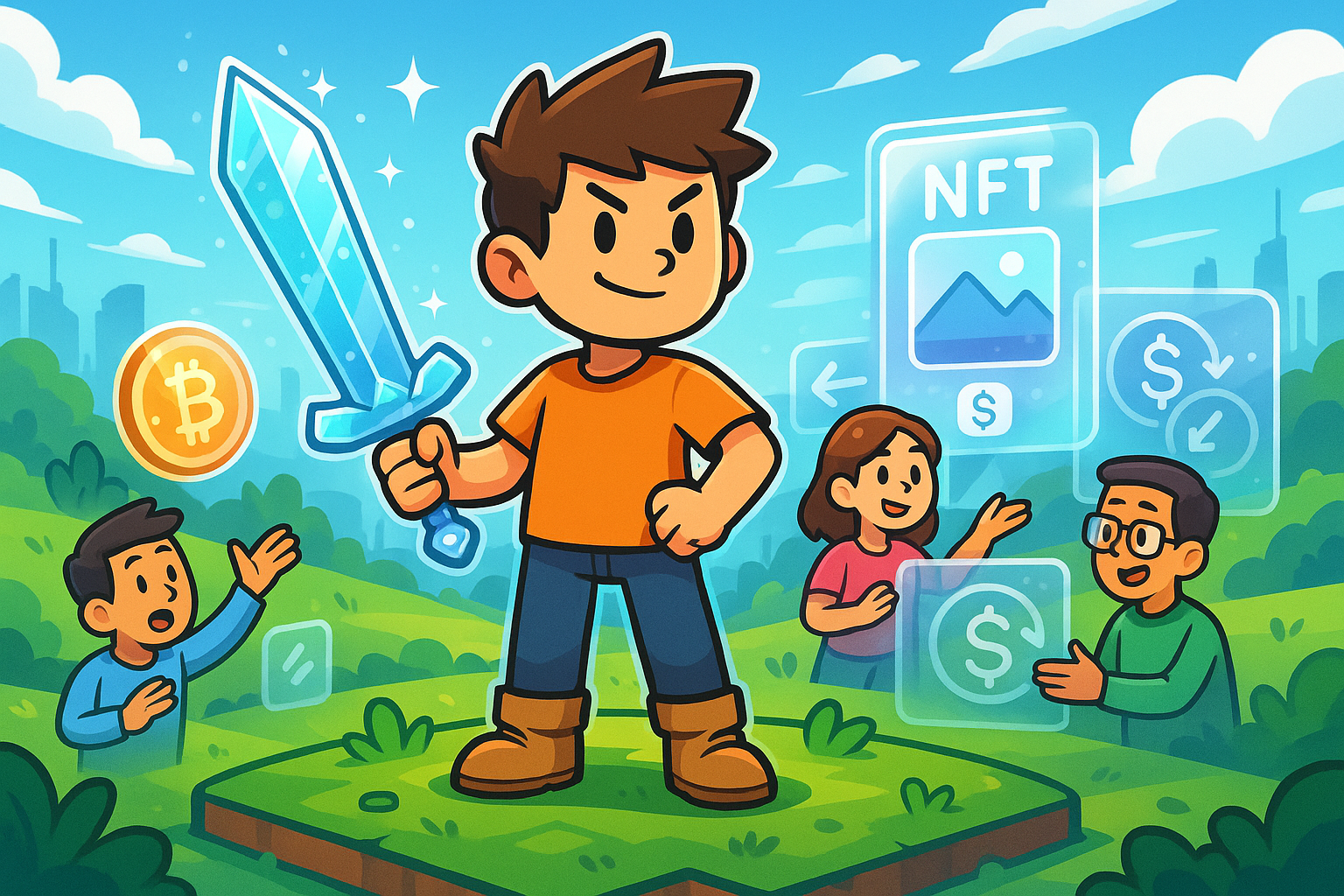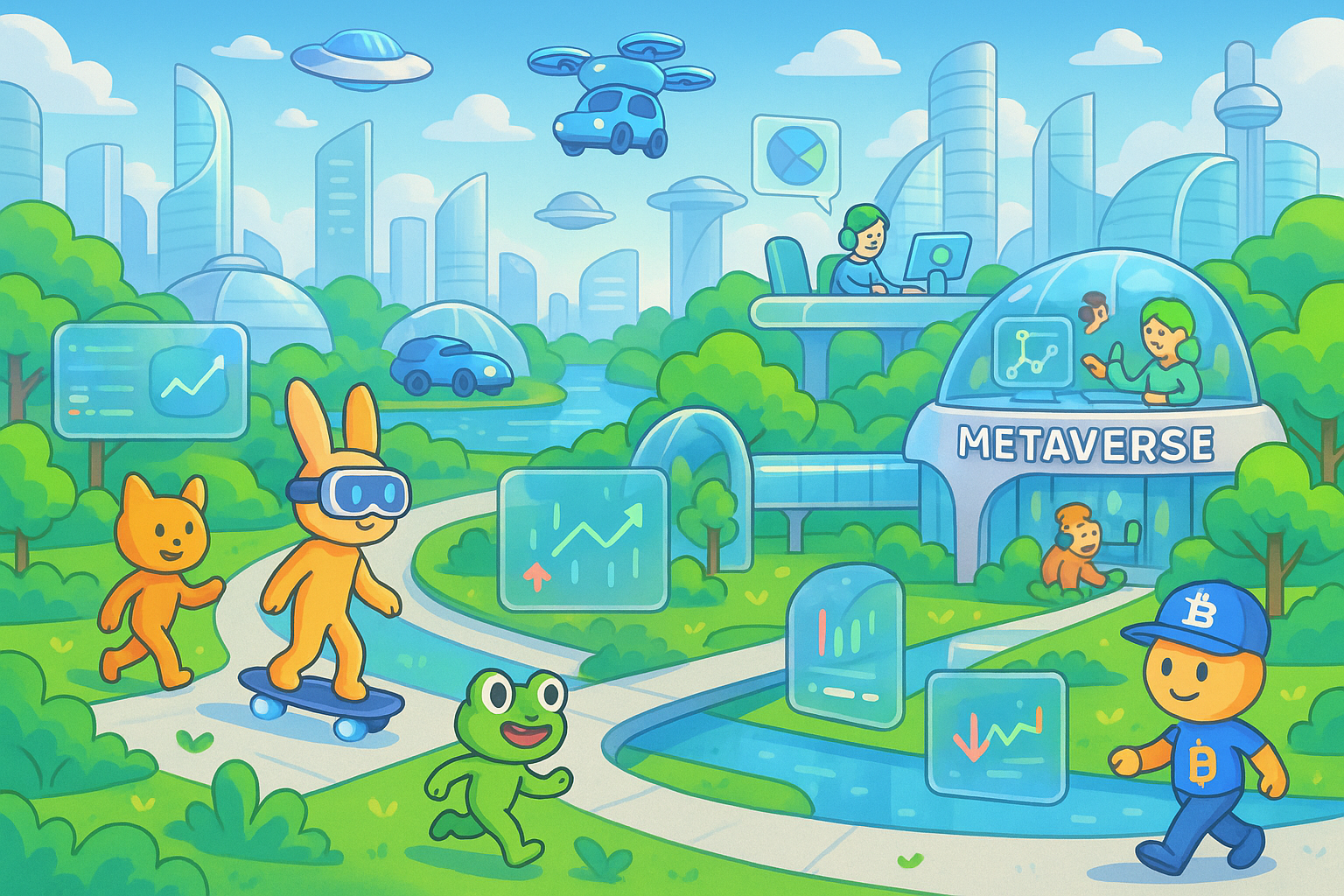The Future is Now: Why You Should Pay Attention to Play-to-Earn (P2E) Gaming
Remember those days when gaming was just a hobby, a way to pass time, or a friendly competition? What if I told you that the pixels on your screen, the characters you control, and the items you collect could actually hold real-world value, empowering you financially and connecting you to a global digital economy? Welcome to the revolutionary world of Play-to-Earn (P2E) gaming, a paradigm shift that's transforming how we interact with digital entertainment and creating entirely new economic opportunities. It's no longer just about playing; it's about owning, earning, and truly participating as a stakeholder in a burgeoning digital economy. The future of gaming isn't merely on the horizon; it's already here, demanding our attention and offering unprecedented possibilities.
What is P2E, Really? A Fundamental Shift in Ownership
At its core, P2E gaming flips the traditional gaming model on its head. In conventional games, players often spend significant amounts of money on titles, in-game items, cosmetics, and subscriptions. Yet, despite their financial and time investment, all digital assets ultimately remain under the sole ownership and control of the game developers. When you decide to stop playing, or if a game eventually shuts down, everything you invested – your time, effort, and often, your hard-earned money – vanishes into the digital ether, leaving you with nothing tangible to show for it. P2E, powered by cutting-edge blockchain technology and non-fungible tokens (NFTs), fundamentally alters this dynamic. It grants players true, verifiable ownership over their in-game assets. These assets can manifest in countless forms: unique characters, rare skins, powerful weapons, plots of virtual land, exclusive cosmetic items, or even special abilities. Because these assets are represented as NFTs on a blockchain, they possess unique digital fingerprints, making them scarce, verifiable, and truly owned by the player. This means they can be freely bought, sold, or traded on open, transparent marketplaces, much like physical goods in the real world. Your dedication and skill spent within a game's ecosystem can now directly translate into tangible economic value, offering a compelling return on your digital efforts.
Diverse Earning Mechanisms: Beyond Just Playing
The earning mechanisms within P2E games are incredibly diverse and continually evolving, moving beyond simple engagement to offer a variety of ways to generate value. One of the most common and compelling methods is through the acquisition, collection, and subsequent trading of NFTs. Imagine the thrill of acquiring a legendary digital sword after defeating a formidable in-game boss, or perhaps successfully breeding a unique, aesthetically pleasing, and powerful digital pet. These prized digital possessions can then be listed and sold to other eager players on an NFT marketplace for cryptocurrency, which can subsequently be converted into real-world fiat currency. Another prevalent method involves earning in-game cryptocurrencies, often referred to as utility tokens, by actively participating in the game's economy. This could involve completing challenging quests, triumphing in player-versus-player battles, participating in special community events, or even contributing to the game's governance. These earned tokens serve multiple purposes; they can be used within the game for crucial upgrades, unlocking new content, or purchasing items. Crucially, they can also be exchanged on external cryptocurrency exchanges for other digital assets or converted into fiat currency. Staking represents another popular and often more passive earning avenue, where players lock up their tokens or NFTs to support the underlying blockchain network or the game's economy, in return for periodic rewards. Furthermore, many advanced P2E games introduce the concept of virtual land ownership. Players can purchase digital plots, build elaborate structures, host revenue-generating events, develop interactive experiences, or even rent out their virtual real estate to other players, thereby creating sustainable passive income streams within the burgeoning metaverse. The ingenuity of developers in creating new earning models is expanding the possibilities rapidly, ensuring a dynamic and rich ecosystem.

A Catalyst for Economic Empowerment and Global Opportunity
The profound implications of P2E gaming extend far beyond mere entertainment; for countless individuals globally, it has emerged as a legitimate and often life-changing source of income. This is particularly true in developing nations, where traditional job markets may offer limited opportunities or insufficient wages. We've witnessed inspirational stories and the formation of vibrant communities centered around P2E games, where dedicated players can earn enough to significantly supplement their income, support their families, fund their education, or even build entirely new businesses leveraging their in-game activities and digital assets. This radical democratization of economic opportunity is perhaps one of the most powerful and socially impactful aspects of P2E. It fundamentally transforms players from passive consumers into active, engaged participants and true stakeholders in the game's economy, with a vested interest in its longevity and success. The once-futuristic concept of "digital labor" earning real-world, tangible value is no longer a speculative dream but a present-day reality, offering pathways to financial independence and upward mobility previously unimaginable through gaming alone.
P2E's Maturation: Evolving Beyond Early Criticisms
In its nascent stages, P2E faced its fair share of skepticism and, at times, well-founded criticisms. Many early titles were often accused of prioritizing rudimentary earning mechanics over genuinely engaging and enjoyable gameplay, frequently feeling more like a tedious chore than a fun, immersive experience. Concerns were also raised regarding the long-term sustainability of some economic models, the prevalence of speculative pump-and-dump schemes, and the environmental impact associated with certain blockchain technologies, particularly those relying on energy-intensive Proof-of-Work (PoW) consensus mechanisms. However, the P2E space has undergone significant maturation and rapid evolution. Today, a new wave of developers and studios are prioritizing the creation of high-quality, immersive games that are genuinely fun and captivating to play first and foremost. Earning mechanics are now being integrated more seamlessly and thoughtfully, serving to enhance the gameplay experience rather than dominate it. Furthermore, substantial advancements in blockchain technology, especially the widespread shift towards more energy-efficient consensus mechanisms like Proof-of-Stake (PoS), are actively addressing environmental concerns, making the technology more sustainable. We are increasingly seeing larger, established gaming studios and traditional gaming veterans exploring and investing in P2E, bringing their considerable expertise in sophisticated game design, compelling narratives, and robust development to elevate the entire ecosystem and attract a broader audience.

Navigating the Challenges and Forging the Path Forward
Despite its immense and undeniable potential, the P2E landscape isn't without its inherent challenges and complexities. The barrier to entry can still appear daunting for newcomers, often requiring a foundational understanding of cryptocurrencies, digital wallets, and the intricacies of NFT marketplaces. Security risks, including the unfortunate prevalence of scams and sophisticated hacks, remain a persistent concern within the broader cryptocurrency and blockchain space, directly impacting the safety and integrity of P2E assets. The regulatory landscape governing digital assets and blockchain applications is also still in its nascent stages, evolving slowly and creating a degree of uncertainty for both developers and players. Moreover, the inherent volatility of cryptocurrency markets means that the real-world value of earned in-game assets can fluctuate significantly, posing risks to those relying on P2E for income. Addressing these critical challenges necessitates a multi-faceted approach: continued innovation in user experience to simplify onboarding, the implementation of robust, industry-leading security measures, comprehensive and accessible educational resources for all players, and the development of clearer, more stable regulatory frameworks. Making P2E more accessible, transparent, and secure for a global audience is paramount for its sustained growth and long-term success.
The Interoperable and Immersive Future of P2E and the Metaverse
Looking ahead, the future of P2E promises even more groundbreaking and exciting developments. We are rapidly moving towards a more interoperable and interconnected future, a true metaverse where digital assets earned in one P2E game might seamlessly be usable or transferable to another, creating a truly expansive and unified digital realm. Imagine the thrill of using a unique character skin or a legendary weapon you earned in a sprawling fantasy adventure game within a high-octane racing simulator, or a strategic battle arena. This cross-game utility will unlock unprecedented levels of creativity and value for players. The deeper integration of P2E experiences with cutting-edge virtual reality (VR) and augmented reality (AR) technologies will undoubtedly make these digital worlds even more immersive, engaging, and indistinguishable from physical reality, further blurring the lines between our physical and digital existences. We anticipate a significant diversification of earning models, moving beyond simple asset trading to encompass a broader spectrum of activities: highly competitive, skill-based earning rewards for esports and top-tier gameplay, monetization opportunities for content creators within the game (think streaming, building custom maps, or designing unique items), and even the widespread adoption of decentralized autonomous organizations (DAOs) where players actively participate in the governance of the game, having a direct say in its development trajectory, treasury management, and future direction. The "metaverse" is not just an abstract concept or a fleeting buzzword; it is the evolving, persistent digital realm where P2E will not only survive but truly thrive, becoming an indispensable part of our digital lives.

Why You Can't Afford to Ignore P2E Any Longer
P2E is emphatically more than just a passing trend or a niche interest for tech enthusiasts; it represents a profound and fundamental shift in the very fabric of digital ownership, economic interaction, and the power dynamics between creators and users. It stands as a powerful testament to the transformative capability of blockchain technology to empower individuals, foster incredibly vibrant and engaged communities, and unlock unprecedented value from our digital activities and contributions. Whether you identify as a seasoned gamer perpetually seeking the next big challenge, a forward-thinking investor exploring new avenues for growth, or simply a curious individual keen to understand the bleeding edge of technology and economics, gaining a comprehensive understanding of P2E is not just beneficial, but absolutely crucial. It is actively shaping the next generation of digital entertainment, opening doors to entirely new job roles and entrepreneurial ventures, and fundamentally redefining the symbiotic relationship between players and game developers. The irreversible shift from the traditional "free-to-play" model to the empowering "play-and-earn" paradigm is well underway. Those who pay attention now, educate themselves, and engage with this burgeoning ecosystem will be best positioned not only to navigate but also to profoundly benefit from this exciting and rapidly expanding digital frontier. Don't merely play the game; claim your rightful ownership of a piece of it, and actively earn your place in the future of digital interaction.

